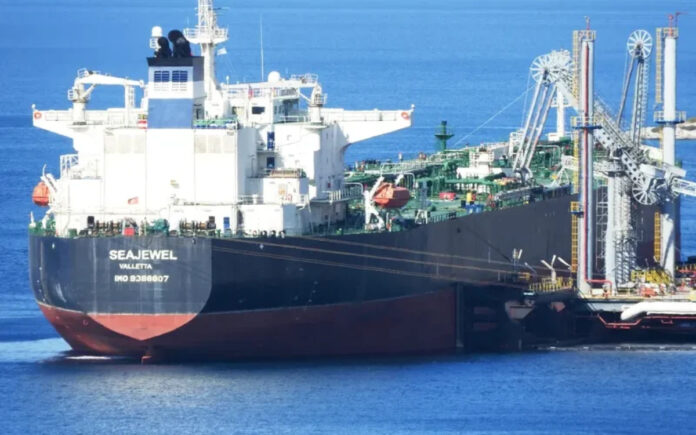Rome: Italian authorities have opened a terrorism investigation into a series of explosions that damaged an oil tanker off northern Italy, marking the latest in a string of similar incidents in the Mediterranean and Baltic Seas over the past month. Genoa’s chief prosecutor, Nicola Piacente, confirmed the probe on Thursday.
The Greek-operated crude oil tanker Seajewel sustained damage after two explosions below its waterline while anchored off the Savona-Vado port on Saturday. The vessel had been in the process of discharging oil when the blasts occurred.
Authorities have yet to determine who was responsible for the attack, but like other recent tanker incidents, the Seajewel had recently called at a Russian port, raising concerns about possible geopolitical motives behind the attacks.
Terrorism Investigation Underway
Piacente stated that investigators have retrieved the ship’s black box, though the vessel itself has not been seized. The anti-terrorism section of Genoa’s Public Prosecutor’s Office is handling the case under the charge of “shipwreck aggravated by terrorist intent.”
The Athens-based shipping company Thenamaris, which operates the Seajewel, confirmed that routine cargo operations were suspended following the explosion on February 15.
“All crew on board the vessel and the third-party individuals involved in the cargo operations are safe, and there has been no harm to the environment as a result of the incident,” Thenamaris said in a statement, adding that the company was fully cooperating with authorities.
Despite the disruption, the vessel remains ready to resume operations once investigations conclude.
Growing Maritime Security Concerns
The attack on the Seajewel follows a troubling pattern of three similar oil tanker explosions in the Mediterranean and Baltic regions over the past month. Ship tracking data and industry sources indicate that each of the affected vessels had previously visited Russian ports before being damaged by unexplained blasts.
Among them, the Seacharm tanker—also operated by Thenamaris—sustained damage in an incident in January. Greek authorities are currently investigating that case, though the vessel has since resumed normal operations.
Additionally, a fourth tanker, the Koala, was damaged and remains stranded at the Russian Baltic Sea port of Ust-Luga.
Escalating Risks for Global Shipping
The unexplained explosions have raised security concerns within the maritime industry, particularly regarding the safety of vessels navigating near Russian and European waters.
Also Read | Russia Claims to Have Reclaimed Majority of Kursk Region from Ukrainian Forces
In a separate but related incident, the Russian cargo ship Ursa Major sank in the Mediterranean Sea off Spain in late December after an engine room explosion. Two crew members remain missing, and Russia’s Foreign Ministry previously acknowledged the incident.
Political Reactions and Next Steps
Lawmakers from Italy’s opposition 5-Star Movement have labeled the Seajewel explosion as a terrorist act and called for a formal report to be submitted to parliament once the investigation is complete.
With four unexplained tanker explosions in recent weeks, authorities across multiple nations are now working to determine whether these incidents are random accidents or part of a larger, coordinated threat to global shipping.
Also Read | ‘Dark Indonesia’ Movement Gains Momentum as Students Oppose Prabowo’s Policies
As investigations continue, concerns over maritime security, geopolitical tensions, and energy supply chains are expected to intensify.



